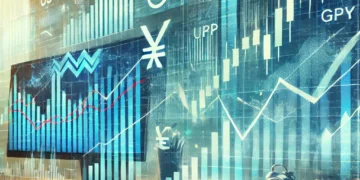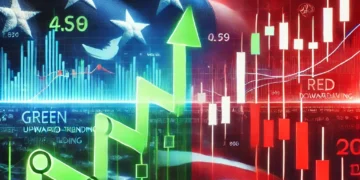The Impact of US Elections on Forex and Stock Markets
Introduction
The US presidential elections hold significant sway over global financial markets, particularly the forex and stock markets. As a pivotal event, elections introduce elements of uncertainty and speculation that can lead to increased market volatility. This article explores how US elections influence these markets, the specific factors at play, and the pre-election trends that may already be shaping market dynamics. Understanding these relationships is crucial for investors and traders looking to navigate the potentially turbulent waters during election seasons.
Pre-Election Trends and Market Sentiment
In the lead-up to a US election, financial markets often experience notable shifts in response to the political climate and potential policy changes that new leadership might bring. Here are several key pre-election changes typically observed:
- Volatility Increases: The uncertainty surrounding election outcomes can cause increased volatility in both the forex and stock markets as investors adjust their positions in anticipation of potential policy shifts.
- Currency Fluctuations: The forex market is particularly sensitive to elections due to the potential for significant shifts in US economic policy, which can affect the dollar’s strength against other major currencies.
- Sector-Specific Movements: In the stock market, certain sectors may react differently based on the anticipated policies of the leading candidates. For example, renewable energy stocks might rally on predictions of a Democratic win, while oil and coal might strengthen under Republican favor.
How US Elections Affect Forex Markets
The forex market, with the US dollar as one of its pillars, is deeply influenced by the electoral cycle in the US. The election can alter the direction of monetary and fiscal policies, significantly impacting the dollar’s value:
- Monetary Policy Expectations: Changes in administration can lead to shifts in monetary policy, which the forex market often anticipates. A candidate who favors more aggressive fiscal spending might lead to expectations of higher inflation, potentially weakening the dollar.
- Risk Sentiment: The overall risk sentiment in global markets can shift based on election results, affecting safe-haven currencies and emerging market currencies differently.
Stock Market Dynamics During US Elections
The stock market’s reaction to US elections can be complex, influenced by the proposed economic policies of the candidates:
- Regulatory Changes: Proposed changes in regulation can have direct impacts on industries. For example, tech companies might face stricter regulations depending on the election outcome, influencing their stock prices.
- Fiscal Stimulus: The size and scope of proposed fiscal stimulus packages can also sway investor sentiment, with larger stimulus packages generally seen as a boon for the stock market.
Key Points to Consider
Here are some bullet points highlighting the critical aspects of how US elections affect markets:
- Increased market volatility is typical as elections approach, with both forex and stock markets reacting to the smallest shifts in polling and candidate policies.
- The US dollar’s performance can fluctuate significantly based on the perceived economic stance of the likely election winner.
- Sector impacts vary, with industries like healthcare, energy, and technology often seeing pronounced stock movements based on the policies favored by the leading candidates.
- Long-term vs. short-term effects: While immediate reactions to election results are common, the long-term effects depend on the actual policies implemented by the new administration.
- Global market implications: The US election results can have far-reaching effects, influencing not just domestic markets but also international financial and trade relationships.
As we approach a US election, traders and investors need to brace for heightened volatility and be prepared to adjust their strategies based on evolving market conditions. The election’s outcome can have extensive implications for the forex and stock markets, influencing everything from currency values to sector-specific stock performance. By closely monitoring election developments and understanding the historical impacts of election results on markets, financial market participants can better position themselves to capitalize on opportunities and mitigate risks associated with this high-stakes period.

























